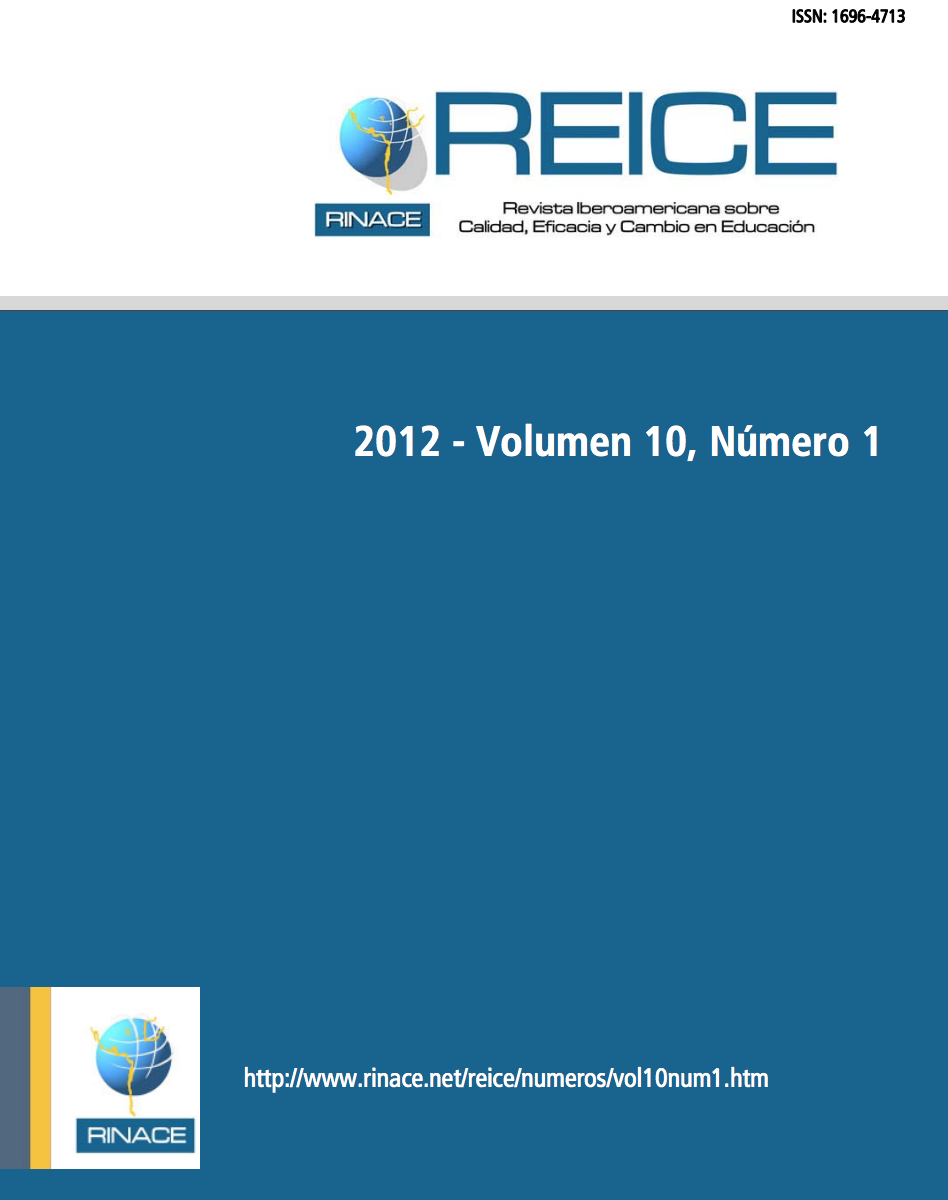Pedagogical Practice of Information and Communication Technology and their Relation with the Constructivist Approaches
Keywords:
Quality, Effectiveness, Change, Improvement, Equity, InnovationCopyright (c) 2016 REICE. Revista Iberoamericana sobre Calidad, Eficacia y Cambio en Educación

This work is licensed under a Creative Commons Attribution-NonCommercial-NoDerivatives 4.0 International License.
Abstract
The use of Information and Communication Technologies (ICT) in educational settings shows slow progress as it requires the adaptation of new approaches to the existing teaching practices, and because of the great difficulty, barriers and resistance that the application of technologies presents. It is also considered important to link its use to an active approach, in which the student is not a passive learner, and takes advantage of the motivation, interactivity and participation provided by the technology. In this sense, the use of technology in the classroom must be accompanied by a shift on the methodological approach; otherwise it loses effectiveness, efficiency and effectiveness, which would be detrimental to the subsequent measurement on the pedagogical use of ICT. Definitely teachers’ attitudes and opinions towards constructivist approaches, collaborative approaches and the use of ICT are very positive and high rated. Put into practice, some good practices are recognized for enhancing meaningful learning, active learning and autonomy; nevertheless, they barely enhance learning by searching or projects methodology. It is distressing to find out, by the interviews, that most teachers do not include ICTs in their practice. Briefly it can be concluded that there is much to improve on the pedagogical use of ICT and active methodologies related to construction of learning. Despite the evidence, this research reaffirms a positive evaluation and great teacher attitudes towards the use of technologies and constructivist approaches.
Downloads
References
Bericat, E. (1998). La integración de los métodos cuantitativos y cualitativos en la investigación social. Barcelona: Editorial Ariel.
Balanskat, A., Blamire, R., y Kefala, S. (2006). The ICT Impact Report. A review of studies of ICT impact on schools in Europe. European Schoolnet, European Comission. http.//ec.europa.eu/education/doc/reports/doc/ictimpact.pdf.
Beltrán, J. A. (2003). Las TIC: Mitos, promesas y realidades. En el Congreso sobre la Novedad Pedagógica de Internet, Madrid.
Cuban, L. (2001) Oversold and underused: computers in the classroom. Cambridge MA: Harvard University press.
ICT (2001). Information and Communication Technology in European Education Systems. Brussels: Eurydice. Law, N., Pelgrum, W. J. y Plomp, T. (eds.) (2008). Pedagogy and ICT use in schools around the world: Findings from the IEA SITES 2006 study. Hong Kong: CERC-Springer.
Mayer, R. E. (2004) Should There Be a Three-Strikes Rule Against Pure Discovery Learning? American Psychologist, 59(1), pp.14–19.
Marqués, P. (2006). Catálogo de modelos de uso didáctico de las TIC: Propuestas de Uso. http://www.pangea.org/dim/aulatic/catalogomodelos.htm.
Pritchard, A. (2007). Effective Teaching with Internet Technologies Pedagogy and Practice. London: Paul Chapman Publishing.
Somekh, B. (2007). Pedagogy and learning with ICT. Researching the art of innovation. London: Routledge. Taylor and Francis Group.
Webb, M. y Cox, M. (2004). A review of pedagogy related to information and communications technology. Technology, Pedagogy and Education, 13(3), pp. 235–86.
